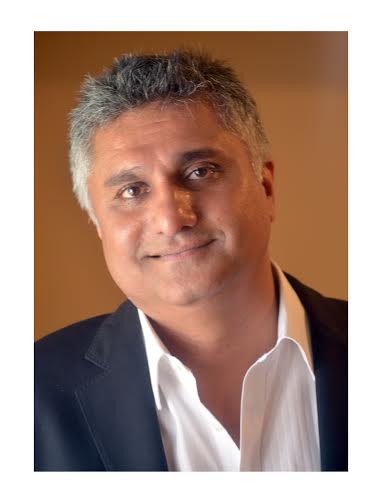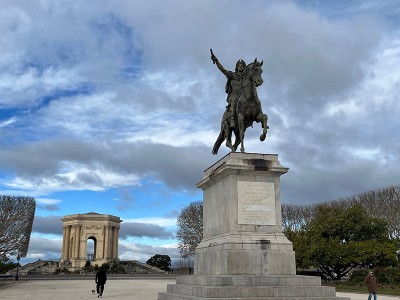February 05, 2026 10:25 pm (IST)

Hotel industry sceptical about govt's homestay plans to promote tourism
Mumbai, May 5 (IBNS): The Hotel and Restaurant Association of Western India (HRAWI) has raised concerns over the government's plan to open up homestays as a way to bridge the acute deficiency of hotel rooms in the country for promoting tourism.
The proposal which may allow anyone to offer stays at their homes will have no Government intervention and not attract any kind of taxation or commercial tariffs. The hotel industry is sceptical about the outcome of such a plan as it could backfire with no assurance of guest safety and would have consequences that affect employment and tax revenues.
“In a country like India where tourism is at a nascent stage promotion of homestays at the expense of organised hospitality could spell doom. The primary problem with homestays is that there are no standardisations or categorisations. There have been multiple cases of exaggerated promises, misrepresentations, disagreements and conflicts with guests, hygiene issues and intimidations among others. Because homestays are unregulated, there are no redressal systems in place,” says Mr. Bharat Malkani, President, HRAWI & Federation of Hotels and Restaurants Association of India (FHRAI).
“In a country like India where tourism is at a nascent stage promotion of homestays at the expense of organised hospitality could spell doom. The primary problem with homestays is that there are no standardisations or categorisations. There have been multiple cases of exaggerated promises, misrepresentations, disagreements and conflicts with guests, hygiene issues and intimidations among others. Because homestays are unregulated, there are no redressal systems in place,” says Mr. Bharat Malkani, President, HRAWI & Federation of Hotels and Restaurants Association of India (FHRAI).
“Hotels are required by law to send details of foreign guests to the police station by submission of a C Form. This is a security requirement from the Ministry of Home Affairs. Homestays are not required to be compliant and the industry fears that this will become the de facto accommodation for those foreigners that seek anonymity from the Police,” he adds.
HRAWI also questioned the relevance of subjecting hotels to administrative clearances, liquor permits and other licenses while home stays providing the very same services are exempted. Homestays, functioning just like hotels do, are prevalent even today in a lot of states. However, they are unorganized and are presently limited in numbers. With the Government’s new shift in policy focusing on homestays, the dynamics are expected to change.
“The hospitality industry without homestays in Maharashtra today can generate almost Rs. 600 crores per extra night that a foreign tourist stays back to the Government as foreign exchange earnings, besides being the highest employment generator. Almost all tourist towns across the world have grown on the back of strong hospitality infrastructure and not homestays, which are brought in only as a stop gap emergency measure, as Delhi did during the Asian games, due to the three year gestation period to add new hotel rooms. The solution to growth of tourism in India is freeing the hospitality sector from red tapism and following a pragmatic taxation policy,” says Kamlesh Barot, past President, HRAWI.
“If the homestays concept does go into execution then hotels that are presently operating with the highest taxation applicable in addition to paying for utilities such as water and electricity at commercial rates are bound to be doomed. Tourism cannot afford to run or prosper without hotels and the Government will have to consider an alternate plan that can either allow hotels to operate with the same relaxations as would be given to homestays or vice versa,” concludes Malkani.
HRAWI also questioned the relevance of subjecting hotels to administrative clearances, liquor permits and other licenses while home stays providing the very same services are exempted. Homestays, functioning just like hotels do, are prevalent even today in a lot of states. However, they are unorganized and are presently limited in numbers. With the Government’s new shift in policy focusing on homestays, the dynamics are expected to change.
“The hospitality industry without homestays in Maharashtra today can generate almost Rs. 600 crores per extra night that a foreign tourist stays back to the Government as foreign exchange earnings, besides being the highest employment generator. Almost all tourist towns across the world have grown on the back of strong hospitality infrastructure and not homestays, which are brought in only as a stop gap emergency measure, as Delhi did during the Asian games, due to the three year gestation period to add new hotel rooms. The solution to growth of tourism in India is freeing the hospitality sector from red tapism and following a pragmatic taxation policy,” says Kamlesh Barot, past President, HRAWI.
“If the homestays concept does go into execution then hotels that are presently operating with the highest taxation applicable in addition to paying for utilities such as water and electricity at commercial rates are bound to be doomed. Tourism cannot afford to run or prosper without hotels and the Government will have to consider an alternate plan that can either allow hotels to operate with the same relaxations as would be given to homestays or vice versa,” concludes Malkani.
Support Our Journalism
We cannot do without you.. your contribution supports unbiased journalism
IBNS is not driven by any ism- not wokeism, not racism, not skewed secularism, not hyper right-wing or left liberal ideals, nor by any hardline religious beliefs or hyper nationalism. We want to serve you good old objective news, as they are. We do not judge or preach. We let people decide for themselves. We only try to present factual and well-sourced news.
Support objective journalism for a small contribution.
Latest Headlines
Air India set to unveil all-new seat experience at OTM 2026 — flyers in for a surprise!
Wed, Feb 04 2026
Big Upgrade for flyers! Air India to fly brand new dreamliner on Mumbai–Frankfurt route from February
Fri, Jan 16 2026
Travel game changer! Air India–Saudia mega deal unlocks seamless flights to over 25 cities
Thu, Jan 15 2026
Air India Express ‘Time to Travel’ sale: Domestic fares starts from just Rs. 1,350!
Wed, Jan 14 2026
Taj Ganga Kutir: A riverine rhapsody near Kolkata at Raichak
Tue, Dec 30 2025
Flying Europe just got easier: Air India teams up with airBaltic
Tue, Dec 30 2025






